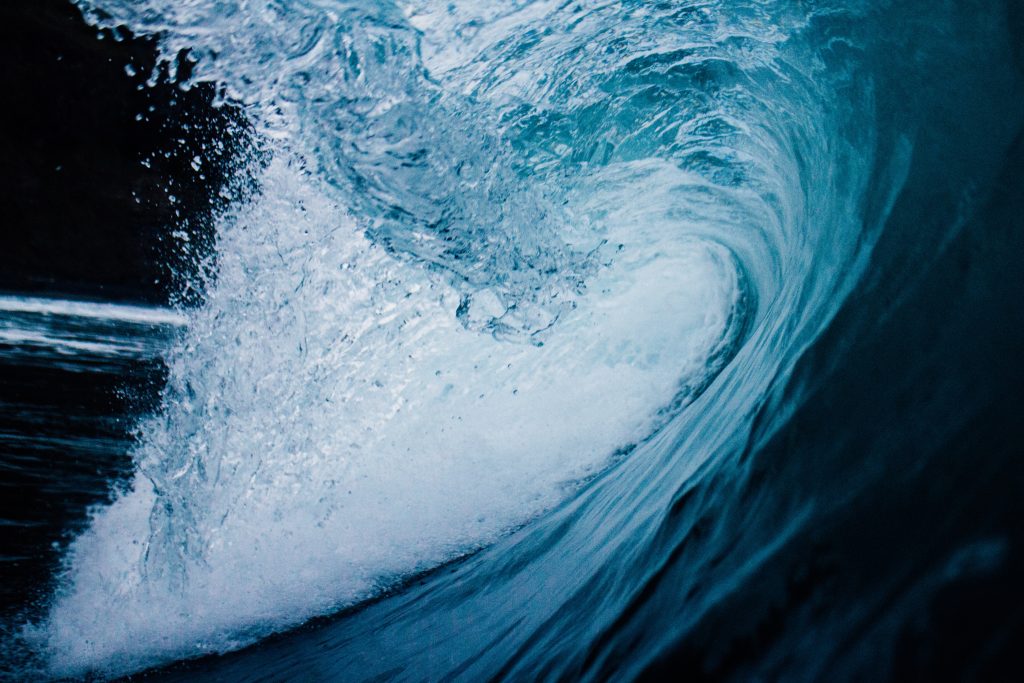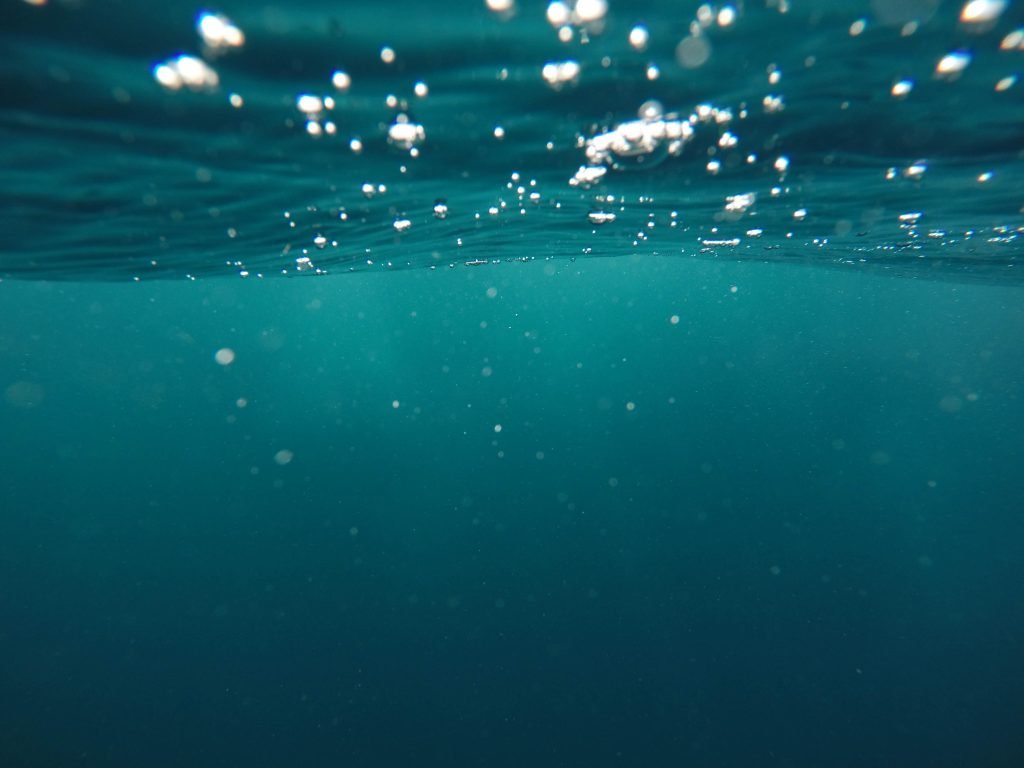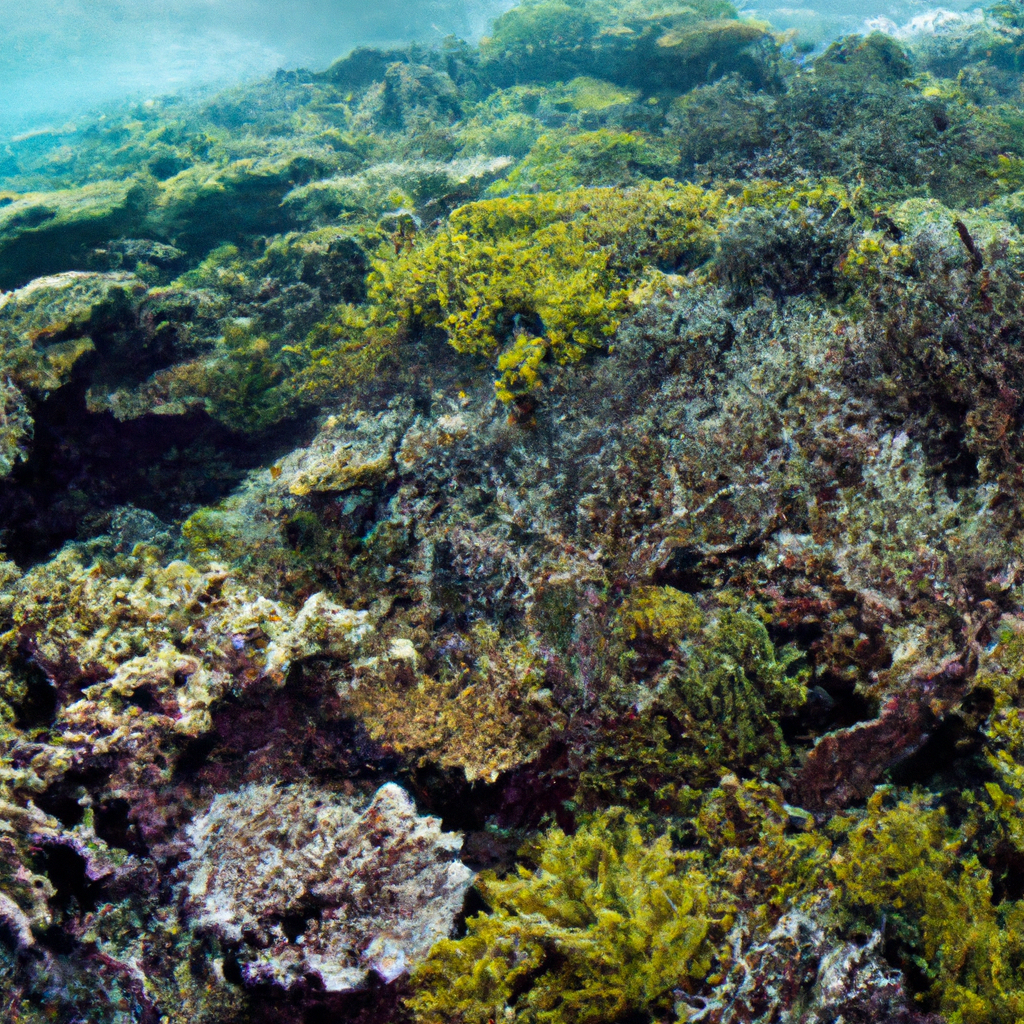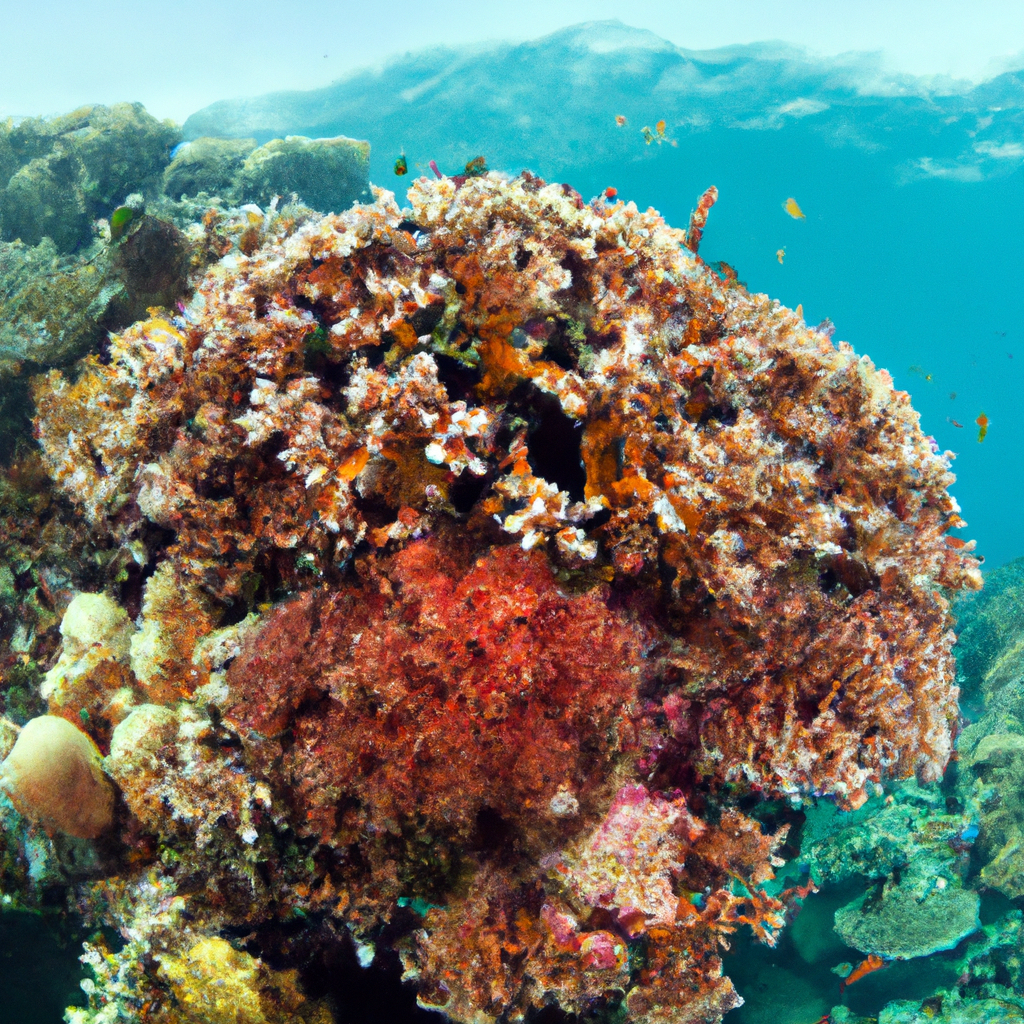Coral reefs are breathtaking ecosystems full of stunning beauty and immense biodiversity. However, these delicate marvels are facing numerous threats that have the potential to wipe them out entirely. Without urgent action, coral reefs could be lost forever. In this article, you will discover the importance of protecting coral reefs, the various dangers they face, and the crucial steps we can take to safeguard these incredible underwater wonders. So, let’s dive in and explore the amazing world of coral reefs together.
Understanding the Importance of Coral Reefs
coral reefs play a vital role in ecosystems around the world. These magnificent underwater ecosystems are home to a diverse array of marine life, providing habitat, shelter, and breeding grounds for countless species. Coral reefs support approximately 25% of all known marine life, making them one of the most biodiverse habitats on the planet. From tiny fish and vibrant corals to majestic sea turtles and beautiful dolphins, coral reefs are teeming with life.
Role in Ecosystems
Coral reefs serve as the lifeblood of numerous ecosystems, acting as nurseries for young fish and other marine organisms. Additionally, coral reefs provide crucial feeding areas for larger predators, such as sharks and barracudas. The intricate structure of coral reefs also helps to dissipate wave energy, protecting coastal communities from the impact of storms and reducing erosion.
Socioeconomic Importance
The socioeconomic importance of coral reefs cannot be overstated. These vibrant ecosystems generate billions of dollars annually through tourism, fishing, and other industries. For many coastal communities, coral reefs are the backbone of their economies, providing job opportunities and income. Additionally, the beauty and biodiversity of coral reefs attract tourists from around the world, boosting local economies and supporting cultural preservation.
Coral Reefs as Significant Cultural Signposts
Coral reefs hold immense cultural significance for many communities. For thousands of years, people have relied on coral reefs for sustenance, spiritual beliefs, and cultural traditions. These underwater wonders are often considered sacred by indigenous communities, representing a deep connection to their ancestral heritage. Preserving coral reefs is not only vital for ecological and economic reasons but also for the preservation of cultural heritage.
Identifying Threats to Coral Reefs
Despite their incredible importance, coral reefs are facing numerous threats that are endangering their continued existence. Understanding and addressing these threats is crucial in safeguarding these invaluable ecosystems for future generations.
Climate Change and Global Warming
One of the most significant threats to coral reefs is climate change and global warming. Rising sea temperatures and increased carbon dioxide levels in the atmosphere contribute to coral bleaching events, causing the coral to lose its vibrant colors and eventually die. The frequency and severity of these bleaching events have increased in recent years, posing a significant risk to the survival of coral reefs worldwide.
Ocean Acidification
Another major threat to coral reefs is ocean acidification. As carbon dioxide is absorbed by the oceans, it reacts with seawater, leading to a decrease in pH levels. This acidification makes it harder for corals to build their calcium carbonate skeletons, which are vital for their survival. Without healthy corals, entire reef ecosystems can collapse, leading to devastating consequences for marine life and coastal communities.
Overfishing and Destructive Fishing Practices
Overfishing and destructive fishing practices also pose a significant threat to coral reefs. When fish populations are depleted, the delicate balance of the ecosystem is disrupted. Additionally, destructive fishing practices, such as using dynamite or cyanide, can cause irreversible damage to coral reefs. Implementing sustainable fishing practices and enforcing fishing regulations are essential in protecting coral reefs and maintaining the health of marine ecosystems.
Coastal Development and Pollution
Coastal development and pollution have a profound impact on coral reefs. Sediment runoff from construction projects can smother coral and prevent it from growing. The discharge of untreated sewage and chemicals into the ocean can lead to nutrient pollution, causing harmful algal blooms that can suffocate corals. Proper planning and regulation of coastal development, along with effective waste management practices, are crucial for reducing pollution and protecting coral reefs.

Effects of Coral Reef Degradation
The degradation of coral reefs has far-reaching consequences that extend beyond the loss of a beautiful ecosystem. Understanding these effects is crucial in highlighting the urgency of coral reef conservation efforts.
Biodiversity Loss
Coral reef degradation leads to a loss of biodiversity. When coral reefs decline, the intricate web of life they support is disrupted. Countless species, including fish, invertebrates, and plants, lose their habitat and food sources, leading to a decline in their populations. The loss of biodiversity not only affects the health of coral reefs but also has wider implications for the stability of marine ecosystems.
Economic Impact
The economic impact of coral reef degradation is significant. As coral reefs decline, the industries that rely on them, such as tourism and fishing, suffer. Coastal communities lose jobs and income, leading to economic instability. The ripple effect of coral reef degradation extends beyond the immediate vicinity, affecting global economies and trade networks that depend on healthy and thriving coral reef ecosystems.
Influence on Marine and Coastal Ecosystems
Coral reefs play a critical role in the health and functioning of marine and coastal ecosystems. They provide essential habitats for numerous species, acting as breeding grounds and nurseries. The loss of coral reefs can disrupt the entire food chain, leading to imbalances in marine ecosystems. Additionally, reefs act as natural barriers, protecting coastlines from erosion and buffering the impact of storms. The degradation of coral reefs can leave coastal communities vulnerable to the destructive forces of waves and hurricanes.
Implications for Coastal Communities
The degradation of coral reefs has direct implications for coastal communities, especially those that rely on these ecosystems for their livelihoods. The loss of income from fishing and tourism can result in poverty and social upheaval. Coastal communities that have traditionally relied on coral reefs for sustenance and cultural practices face the erosion of their way of life. Protecting coral reefs is not only about preserving nature but also about ensuring the well-being and resilience of coastal communities.
Global Initiatives Protecting Coral Reefs
Recognizing the urgent need for action, numerous global initiatives have been established to protect and conserve coral reefs. These initiatives bring together governments, organizations, scientists, and communities to work collaboratively towards the preservation of these invaluable ecosystems.
Coral Reef Conservation Program
The Coral Reef Conservation Program, established by the U.S. National Oceanic and Atmospheric Administration (NOAA), focuses on the protection and restoration of coral reefs in U.S. waters. Through research, monitoring, and conservation efforts, this program aims to ensure the long-term viability of coral reef ecosystems.
International Coral Reef Initiative
The International Coral Reef Initiative (ICRI) is a global partnership that brings together governments, organizations, and individuals to address the challenges faced by coral reefs. ICRI focuses on raising awareness, facilitating scientific research, and implementing conservation measures to protect and restore coral reefs worldwide.
The Coral Triangle Initiative
The Coral Triangle Initiative (CTI) is a collaborative effort between six countries in Southeast Asia, known as the Coral Triangle. This initiative aims to protect and sustainably manage the rich biodiversity of the Coral Triangle region, where more than 75% of the world’s coral species are found. Through joint conservation and sustainable resource management strategies, the CTI strives to maintain the ecological and socioeconomic importance of coral reefs in the region.
UNESCO’s Marine World Heritage Sites
UNESCO’s Marine World Heritage Sites include some of the most iconic and diverse coral reef ecosystems in the world. These sites, such as the Great Barrier Reef in Australia and Tubbataha Reefs Natural Park in the Philippines, are recognized for their outstanding universal value and are protected to ensure their long-term conservation. UNESCO works with governments and local communities to manage these sites sustainably and raise awareness about the importance of coral reef conservation.

Role of Government in Protecting Coral Reefs
Governments play a crucial role in protecting coral reefs through various measures and policies.
Creating Protected Marine Areas
Governments can establish protected marine areas to safeguard coral reefs and other marine ecosystems. These areas restrict or prohibit certain activities, such as fishing or coastal development, to ensure the conservation of reef habitats. Marine protected areas provide a safe haven for marine life, allowing populations to recover and thrive.
Enforcing Environmental Laws
Enforcing environmental laws and regulations is vital in preventing activities that damage coral reefs. Governments can establish monitoring systems and dedicated enforcement units to ensure compliance with fishing regulations, waste management practices, and coastal development guidelines. By holding individuals and companies accountable for their actions, governments can deter destructive practices and promote sustainable behaviors.
Funding for Coral Reef Research and Conservation
Governments can allocate funds to support coral reef research and conservation initiatives. This financial support enables scientists and organizations to study coral reefs, monitor their health, and develop strategies for their protection. Governments can also support community-based initiatives and provide financial incentives for sustainable fishing practices and coastal restoration efforts.
The Responsibility of the Fishing Industry in Reef Conservation
The fishing industry plays a vital role in reef conservation and has the responsibility to adopt sustainable practices to ensure the long-term viability of coral reefs.
Promoting Sustainable Fishing Practices
The fishing industry can promote sustainable practices by implementing measures to minimize bycatch and reduce fishing pressure on vulnerable species. Adopting techniques such as selective fishing gear and properly managing fishing quotas can help prevent overfishing and allow fish populations to recover. Working closely with scientists and conservation organizations, the fishing industry can contribute to the protection of coral reefs while ensuring the sustainability of their operations.
Active Participation in Coral Restoration Programs
The fishing industry can play an active role in coral restoration programs. By collaborating with scientists and conservationists, fishing companies can contribute resources and manpower to restore damaged coral reefs. Strategies such as coral transplantation and artificial reef construction can help revitalize degraded areas and promote the recovery of marine ecosystems.
Educating Stakeholders about Coral Reef Conservation
The fishing industry has the power to educate stakeholders, including fishermen, seafood retailers, and consumers, about the importance of coral reef conservation. By raising awareness and promoting sustainable fishing practices, the industry can create a culture of responsibility and ensure the longevity of coral reefs. Collaboration with conservation organizations and participation in public outreach programs can help disseminate knowledge and foster a sense of stewardship among all stakeholders.

Engagement of Local Communities in Coral Reef Preservation
Engaging local communities in coral reef preservation is crucial for the success of conservation efforts. By involving communities in monitoring, restoration, and awareness activities, the resilience and effectiveness of conservation initiatives can be enhanced.
Community-Based Reef Monitoring
Training and empowering local communities to monitor the health of coral reefs can provide valuable data for scientists and decision-makers. By involving communities in monitoring programs and citizen science initiatives, individuals become stewards of their local reefs and gain a deeper understanding of the issues facing these ecosystems. This participatory approach not only generates vital information but also fosters a sense of ownership and pride among community members.
Involvement in Restoration and Clean-Up Activities
Local communities can actively participate in coral restoration and clean-up activities. By organizing volunteer efforts and community-led initiatives, individuals contribute to the recovery of damaged reefs and help minimize pollution. Community involvement in restoration projects not only provides immediate benefits but also strengthens the bond between communities and their natural environment.
Educating and Raising Awareness in Communities
Education and awareness are key components of successful coral reef conservation. Local communities can be educated about the importance of coral reefs, the threats they face, and the actions needed to protect them. By organizing workshops, awareness campaigns, and educational programs, communities can become advocates for coral reef conservation, spreading the message to wider audiences and influencing behaviors.
The Role of the Tourism Industry in Coral Reef Conservation
The tourism industry has a significant impact on coral reefs, and its active involvement in conservation efforts is vital for the preservation of these ecosystems.
Promoting Responsible Ecotourism
The tourism industry can promote responsible ecotourism practices that minimize the negative impacts on coral reefs. By working with tour operators, hotels, and tourists, the industry can develop and implement guidelines for responsible reef exploration, such as avoiding physical contact with corals, not feeding marine life, and using reef-safe sunscreen. Promoting sustainable tourism practices ensures that the economic benefits of tourism are balanced with the conservation needs of coral reefs.
Raising Awareness among Tourists
Tourists have the power to make a positive difference in coral reef conservation. The tourism industry can play a vital role in raising awareness among tourists by providing information about the importance of coral reefs, the threats they face, and responsible tourism practices. By engaging tourists in educational activities, guided tours, and interactive experiences, the industry can foster a sense of stewardship and create ambassadors for coral reef conservation.
Financial Support for Coral Reef Conservation Projects
The tourism industry can provide financial support for coral reef conservation projects through various means. Hotels, resorts, and tour operators can allocate a portion of their revenue to fund research, monitoring, and restoration initiatives. Additionally, partnerships between the tourism industry and conservation organizations can establish sustainable funding mechanisms to support ongoing conservation efforts. By investing in the protection of coral reefs, the tourism industry ensures the long-term sustainability of its own operations.

Technological Innovations Enhancing Coral Reef Conservation
Technological innovations are revolutionizing coral reef conservation efforts, providing scientists and conservationists with new tools and strategies to protect and restore these fragile ecosystems.
3D Coral Printing
3D coral printing, also known as coral reef restoration technology, is a groundbreaking innovation that holds immense potential for coral restoration. This technology involves creating artificial coral structures using 3D printing techniques and then placing them in degraded reef areas. These structures provide a substrate for coral settlement and growth, promoting the recovery of damaged reefs.
Remote Sensing Technology in Coral Monitoring
Remote sensing technology, such as satellite imagery and aerial surveys, has transformed how scientists monitor and assess the health of coral reefs. These technologies enable the collection of large-scale data on reef conditions, including temperature, water quality, and coral cover. By analyzing this data, researchers can identify areas of concern, track changes over time, and develop targeted conservation strategies.
Artificial Coral Reefs
Artificial coral reefs are being deployed in various locations to enhance the recovery of degraded reef systems. These structures, made from materials such as concrete or metal, mimic the natural complexity of coral reefs and provide habitat for marine life. Artificial reefs can be strategically placed to support the processes of coral settlement and growth, promoting the restoration of damaged ecosystems.
Steps Individuals Can Take to Protect Coral Reefs
Individual actions can make a significant impact in protecting coral reefs. By adopting sustainable practices and supporting conservation initiatives, individuals can contribute to the preservation of these invaluable ecosystems.
Reducing Carbon Footprint
Reducing carbon emissions is crucial in mitigating the impacts of climate change on coral reefs. Individuals can make a difference by limiting energy consumption, using renewable energy sources, and reducing reliance on fossil fuels. Additionally, supporting policies and initiatives aimed at reducing greenhouse gas emissions helps to safeguard coral reefs and the ecosystems they support.
Making Ocean-Friendly Choices
Making ocean-friendly choices can have a positive impact on coral reefs. By choosing sustainable seafood options, individuals can help reduce overfishing and minimize the demand for destructive fishing practices. Avoiding single-use plastics and properly disposing of waste also prevents pollution that harms coral reefs. Every small action counts in protecting these fragile ecosystems.
Getting Involved in Coral Conservation Programs
Getting involved in coral conservation programs is a powerful way to contribute to the protection of coral reefs. Individuals can volunteer for reef clean-up activities, participate in citizen science initiatives, or support local organizations working towards reef preservation. By actively engaging in conservation efforts, individuals become part of the solution and inspire others to join the cause.
In conclusion, understanding the importance of coral reefs is crucial in ensuring their long-term survival. These unique ecosystems provide vital ecological services, socioeconomic benefits, and cultural significance. By identifying and addressing the threats facing coral reefs, engaging in conservation initiatives, and promoting sustainable practices, we can protect the marvels of coral reefs for generations to come. It is the responsibility of governments, industries, local communities, and individuals to work together and preserve these underwater wonders that are integral to the health and well-being of our planet.


